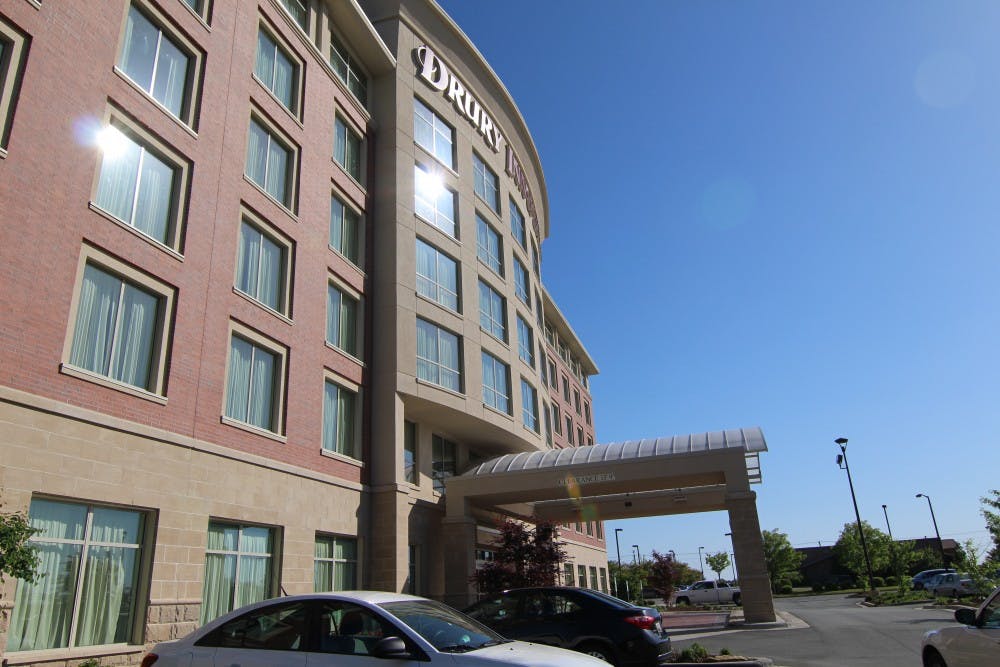Alamance County is looking to increase its occupancy tax to North Carolina’s maximum – 6 percent. Currently, the county is taxing visitors at a rate of 3 percent, according to the Alamance County Visitors Buerau. Bumping the tax up by 3 percent will put the county at around the state average.
The occupancy tax, also known as the hotel tax, is used to promote tourism in the county. Taxes like these are a way for counties to tax those using the county’s facilities but not necessarily staying in town.
According to Anderson, the “Inn at Elon,” the university’s new on-campus hotel, will have to pay property taxes. Visitors who are staying in the hotel will be required to pay the additional hotel tax of the county – whether it be 3 percent or 6 percent.
Elon University is the single largest driver of tourist traffic in Alamance County, according to Mark Cryan, chairman of the Tourism Department of Authority (TDA).
Dan Anderson, vice president for university communications, agrees with Cryan, seeing the impact the university has on the surrounding community.
“If there was no Elon University here, the local municipality would not have to invest in roads, police … as much as they do,” Anderson said.
The majority of visitors in Alamance County, by default, are prospective students and families and friends of current Elon students, according to Cryan.
“There’s a lot of events the hotels in our area know that they will be filled up because of Elon,” Cryan said, citing Rising Phoenix weekend, Parent’s Weekend and graduation.
With 1,550 rooms in Alamance County, many of those are booked in advance specifically for
university events.
Stephanie Williams, sales manager at Drury Inn & Suites in Burlington and member of the TDA, said many of their rooms fill up from visitors coming to the university.
She stays in contact with the university to know when Elon’s
events are.
Because of the flood of tourism in the county, Alamance has to find a way to pay for infastructure other than taxing locals. Raising the hotel tax is a way for the county to be able to provide more services to community without taxing those in
the community.
But not everyone in the county agrees with the proposed tax. Small business owner and Burlington resident Justin Hill questions whether this is in the role of the government. “Taxes are always beneficial to the beneficiary,” Hill said. “I’m a small business owner. I pinch my pennies and am always on the watch for an increase in taxes.”
The advertised rate for someone looking to stay in Hampton Inn & Suites is $129. But with sales tax and an additional 6 percent hotel tax, the price would be about $145.
The price for the surrounding counties, such as Guilford and Orange County, have occupancy taxes that are the state’s maximum of
6 percent.
This month, Mebane asked the North Carolina General Assembly to increase the hotel tax for its municipality. Representing the TDA, Cryan said he feared a domino effect of hotel tax increases would happen across the county if Mebane followed through. Increasing the hotel tax county-wide would create more uniformity in tax laws.
“Our concern from our organization standpoint is that it potentially beings to fragment the tourism promotion efforts in the county,” Cryan said. “If Mebane does that, then probably Burlington would institute their own — they have a majority of the hotel business.”
Cryan said instituting these taxes as a county is best because though Elon is the biggest attraction, most visitors stay in hotels outside of
the town.
In a City of Burlington work session on Monday night, Mayor Ian Baltutis said legislation for the proposal will most likely not be in this year’s session of the North Carolina General Assembly, according to North Carolina House Representative of Alamance County
Stephen Ross.
“I did speak to representative Ross last week, and he said that it would be very difficult to get legislation in the short session this year. … That gives us more time to work on it,”
Baltutis said.
Though this tax is directly affecting those visiting the university, Anderson said it is not the responsibility of the university to inform visitors of the possible increase in price.
“We don’t get into the business of telling people where to stay or how to much to charge,” Anderson said. “That’s not the business of
the university.”


